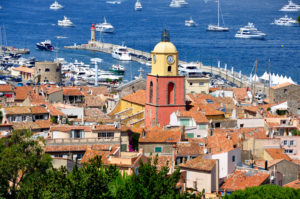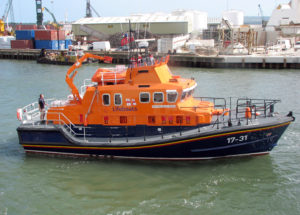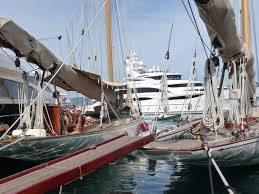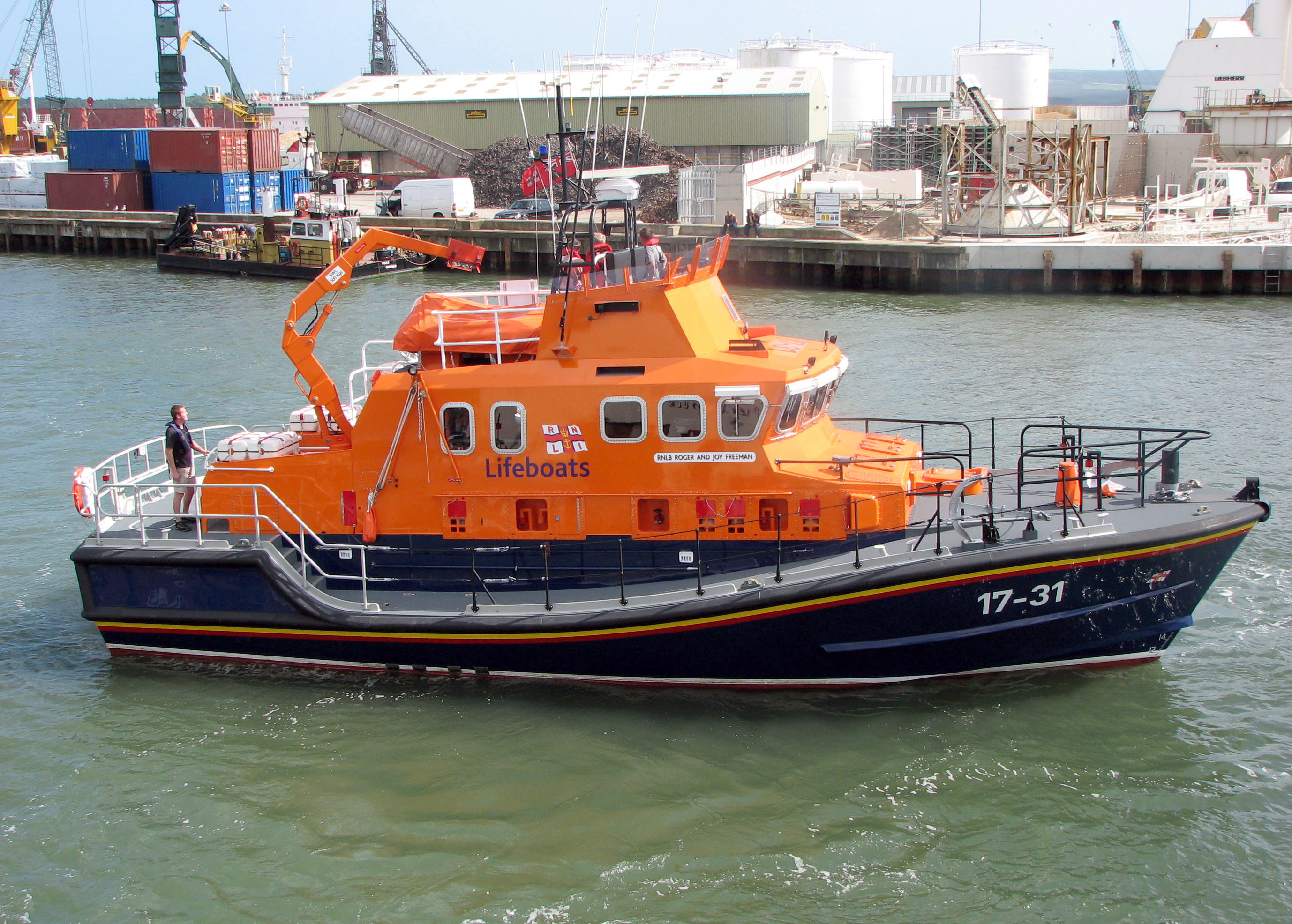2 August 2018
The Lifeboat of Generosity
More needed.
By Lynda Goetz
 I have today donated to both Wikipedia and The Guardian. These are small contributions, admittedly, but made on the basis that I use both these services and should, along with others, contribute to their continuance. I feel that if we all make contributions, however small, or according to our means, these will add up to sufficient to keep these institutions going. This is clearly not how super-yacht owners in the South of France feel about the lifeboats and volunteers who come to their aid when in difficulties.
I have today donated to both Wikipedia and The Guardian. These are small contributions, admittedly, but made on the basis that I use both these services and should, along with others, contribute to their continuance. I feel that if we all make contributions, however small, or according to our means, these will add up to sufficient to keep these institutions going. This is clearly not how super-yacht owners in the South of France feel about the lifeboats and volunteers who come to their aid when in difficulties.
 In the chic resort of St Tropez on the Côte d’Azur, the tycoons, oligarchs and other jet-setters can enjoy the sea and sunshine out of reach of the crowded beaches and prying eyes of those with less money. For those who can afford to own or rent a super-yacht, the decks of their own super gin-palaces are a great place to spend at least part of the summer. What happens however if one of their teenagers or their guests gets into trouble as they fly into the sea down the super slide or flip over a jet ski or, heaven forbid, there is a fire on board that cannot be dealt with by the plentiful crew-members? Well, you call the lifeboat service, of course, which in France, is the Société Nationale de Sauvetage en Mer (SNSM). Malheureusement en France, only 3% of boat owners donate to the lifeboat association, according to Pierre-Yves Barasc, the president of the Saint-Tropez lifeboat association (as opposed to the UK where a majority of boat owners donate or leave legacies).
In the chic resort of St Tropez on the Côte d’Azur, the tycoons, oligarchs and other jet-setters can enjoy the sea and sunshine out of reach of the crowded beaches and prying eyes of those with less money. For those who can afford to own or rent a super-yacht, the decks of their own super gin-palaces are a great place to spend at least part of the summer. What happens however if one of their teenagers or their guests gets into trouble as they fly into the sea down the super slide or flip over a jet ski or, heaven forbid, there is a fire on board that cannot be dealt with by the plentiful crew-members? Well, you call the lifeboat service, of course, which in France, is the Société Nationale de Sauvetage en Mer (SNSM). Malheureusement en France, only 3% of boat owners donate to the lifeboat association, according to Pierre-Yves Barasc, the president of the Saint-Tropez lifeboat association (as opposed to the UK where a majority of boat owners donate or leave legacies).
The current lifeboat in St Tropez has apparently been in service for over 30 years and is in need of repairs, so is out of use for seven weeks. A new boat has been ordered and is under construction in Brittany. It will however not be ready until next spring, as it has taken a long time to raise the necessary money. In the meantime an appeal to fund the last €200,000 has fallen on deaf ears. M. Barasc wrote earlier this year to wealthy individuals and companies owning luxury yachts moored in the town’s harbour. Of the 100 biggest companies in the Var (department) who were recipients of the personal letter sent by the society and the 10 wealthiest individuals who owned both a property and a vessel, only two responded. One made a promise which was never acted upon and the other, the owner of one of the more modest boats in the harbour, gave €10,000.
 Given that 90% of the call-outs happen during the busy period of July to September and currently there is no boat able to answer distress calls from the larger boats (only a semi-rigid boat and the possibility of calling on neighbouring services) this appalling lack of generosity and mean-spiritedness from those most able to contribute seems shocking. As M. Barasc points out, they are more than happy to ‘shower the young ladies with €50,000 bottles of Crystal champagne’, but are too miserly to contribute to the essential replacement of a life-saving vessel.
Given that 90% of the call-outs happen during the busy period of July to September and currently there is no boat able to answer distress calls from the larger boats (only a semi-rigid boat and the possibility of calling on neighbouring services) this appalling lack of generosity and mean-spiritedness from those most able to contribute seems shocking. As M. Barasc points out, they are more than happy to ‘shower the young ladies with €50,000 bottles of Crystal champagne’, but are too miserly to contribute to the essential replacement of a life-saving vessel.
 By way of contrast, this week’s news also contained the story of the ‘maverick publisher’, Felix Dennis, who died 4 years ago having created a publishing empire which included The Week and Viz. His legacy is to be a forest in Warwickshire, known as The Heart of England Forest. This charity was set up by Dennis with the aim of regenerating broad-leaved forest in the UK and by the time of his death in 2014 he had already planted more than a million trees, over 3,500 acres. The ambition is for the charity to own the largest UK woodland, of some 25,000 acres planted with over 10 million trees, and for this space to be entirely open to the public. Most of the £150 million generated by the sale of Dennis Publishing will go to fund this project.
By way of contrast, this week’s news also contained the story of the ‘maverick publisher’, Felix Dennis, who died 4 years ago having created a publishing empire which included The Week and Viz. His legacy is to be a forest in Warwickshire, known as The Heart of England Forest. This charity was set up by Dennis with the aim of regenerating broad-leaved forest in the UK and by the time of his death in 2014 he had already planted more than a million trees, over 3,500 acres. The ambition is for the charity to own the largest UK woodland, of some 25,000 acres planted with over 10 million trees, and for this space to be entirely open to the public. Most of the £150 million generated by the sale of Dennis Publishing will go to fund this project.
Money Week, one of the Dennis Publishing stable, last week carried another story of the generosity of wealth creators. In their ‘Best of the Blogs‘ section, they carried a resumé of an article by the Guardian’s Helen Pidd which tells of one Neil McArthur, who (having failed his 11-plus) became an electrical engineering apprentice with British Nuclear Fuels and subsequently set up, first an engineering business, then the telecommunications firm, sold in 2002, which became TalkTalk. McArthur bought the properties and ‘toys’ usually associated with the sort of wealth he had accumulated, but then decided that there was a limit to the amount he wanted to spend on himself and his family. Since that time he has poured millions into the area he grew up in, Irlam, a district of Salford.
 The money he has put into the area has been used to buy up old premises, do them up and rent them out to small businesses at low rents, which has in turn caused a turnaround in the areas around them. He has also helped finance a sixth-form college, a new sports centre and a new home for the local rugby club, as well as providing grants for many smaller associations such as the Scouts and public art groups. McArthur feels there are many wealthy people all over the region, but ‘they just don’t get asked to chip in’. In Victorian times in this country it was normal for the wealthy to contribute and philanthropy was part of the system. Higher taxes and the growth of the public sector have not only reduced the expectation that the wealthy should be involved in building schools, universities and hospitals, but made many positively distrustful of the motives behind such philanthropy. Perhaps, as McArthur suggests, it should once again “be an expectation, shouldn’t it?” Let us hope that the Brits are more generous and less mean-spirited than their French counterparts; not to mention those Russian oligarchs who were raised on the ideals of Communism.
The money he has put into the area has been used to buy up old premises, do them up and rent them out to small businesses at low rents, which has in turn caused a turnaround in the areas around them. He has also helped finance a sixth-form college, a new sports centre and a new home for the local rugby club, as well as providing grants for many smaller associations such as the Scouts and public art groups. McArthur feels there are many wealthy people all over the region, but ‘they just don’t get asked to chip in’. In Victorian times in this country it was normal for the wealthy to contribute and philanthropy was part of the system. Higher taxes and the growth of the public sector have not only reduced the expectation that the wealthy should be involved in building schools, universities and hospitals, but made many positively distrustful of the motives behind such philanthropy. Perhaps, as McArthur suggests, it should once again “be an expectation, shouldn’t it?” Let us hope that the Brits are more generous and less mean-spirited than their French counterparts; not to mention those Russian oligarchs who were raised on the ideals of Communism.


